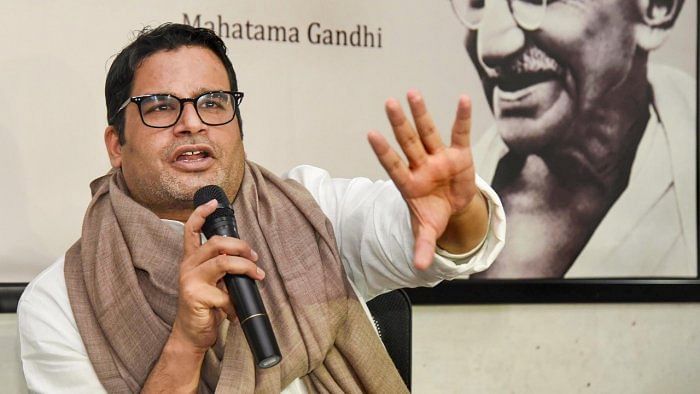
Democracy, viewed from the angle of re-electing a government, is not about the opinion of the majority. It is about garnering the support of the largest chunk of the voters. Rarely a government in India has been re-elected with the support of the majority of voters (more than 50 per cent) ratifying the return.
Narendra Modi's resounding return in 2019 was with 45 per cent popular vote, Mamata Banerjee in 2021 with 48.02 and Yogi Adityanath returned in 2022 with 43.82 per cent votes. In other words, almost in each election majority of the voters reject the ruling party, but thanks to the 'first past the post' system and fragmented opposition, they return with an impressive number of seats.
While the same phenomenon can be observed in all multi-party systems, the ball game is different in India and its states due to a combination of diversities making the voters' minds increasingly inscrutable for professional politicians. How to ensure the most significant chunk of the vote, under the circumstances, is becoming mired in uncertainties.
It explains the rush to hire Prashant Kishor (popularly PK), the professional political consultant. From Narendra Modi to Mamata Banerjee to the Gandhis of the Congress, all have negotiated with Kishor. But what is it that his consultant firm I-PAC can discover, but not the political leaders, some of whom are seemingly hugely popular?
In the new millennium, the interplay of aspirations and needs of the people varies widely from state to state and in different regions within a state. Naturally, the aspirations and needs of the people of Karnataka will be different from that of Bengal, for Karnataka's per capita income, according to the Handbook of Statistics, RBI, 2020, is nearly double of West Bengal. But what if it varies from almost district to district?
Such a phenomenon was evident in 2019 when in Bengal, the ruling Trinamool Congress conceded 18 of the state's 42 Lok Sabha seats to the BJP while securing 22 for itself. The Trinamool's losses were all in the Bengal's northern and western districts. The spread of victory zones was so clearly demarcated between the Trinamool and BJP as if two different states had voted in the election.
Also Read | How Mission PK was aborted
In some measure, Mamata Banerjee's victory in the 2021 Assembly elections was due to complete tactical voting by Muslims. But PK's team had an immense contribution in recovering some lost ground since 2019. The I-PAC identified the reasons for people's dissatisfaction, and Mamata Banerjee followed his prescriptions blindly, promising to curb corruption and introducing various new forms of doles.
It proves that politicians, including someone as connected to people as Mamata Banerjee, do not get proper feedback from the ground nowadays because people do not speak their minds before political persons, who all have lost their credibility. But they share their opinion with the I-PAC's young boys and girls because they are not political persons. If that is the first reason for PK's success, there are two other reasons which are no less vital.
First, politicians are losing grip over people's minds because they remain too committed to 'ideology', which may not work for them. Despite all the efforts by PK, the majority of Hindus (near about 60 per cent of those who voted) of Bengal voted for the BJP even in the last Assembly elections. The TMC loves to play 'secular' (i.e. appeasement) politics to bring the whole of the 30 per cent Muslim vote to its fold.
The second factor is the politicians' misconceptions about ''good governance'', which primarily means liberty from over-imposition of the state, poverty, and other socio-economic inconveniences. Increasingly everywhere in India, all political parties are trying to curb the socio-political freedom of people and then trying to win their hearts by giving freebies. Though it may work sometimes, it may not at other times.
In short, the complexities of political reality and the old-fashioned politicians do not match each other anymore. So, it is only natural that after Modi and Banerjee, the Congress, or at least a section of it, went all out to seek PK's services. Under the circumstances, if PK forms a political party of his own, as indicated by his tweet, it will be an interesting anecdote in the political history of independent India, for it will be an experiment in merging consultation with professional politics.
PK's main disadvantage is that he is not a popular or charismatic character like Modi or Banerjee. So, it will be interesting to see what strategy he follows as a political leader to compensate for the lack of his popularity.
But even a moderate level of success for this shrewd political strategist will mean people have matured enough to buy skilled efficiency rather than charismatic bad governance. It will also be a severe blow to old school ''popular'' politicians who have failed the people for decades as far as good governance is concerned.
(Diptendra Raychaudhuri is a journalist and author based in Kolkata.)
Disclaimer: The views expressed above are the author's own. They do not necessarily reflect the views of DH.